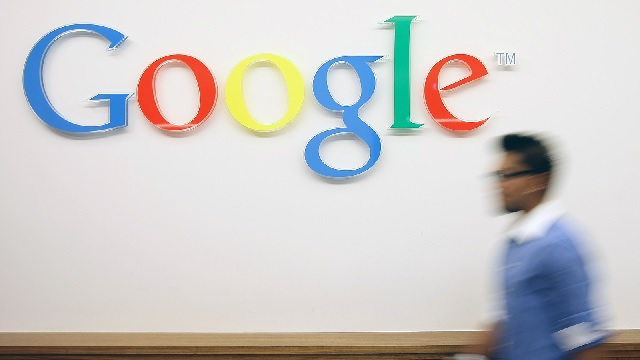Google showed a series of the latest technological achievements in the field of AI
May 10, At the 2023 Google I/O conference, Google showcased a range of its latest technological achievements in the field of artificial intelligence (AI).

Bringing generative AI to search engines and other products
According to Caixin, Pichai, chief executive of Google parent company Alphabet, said, "We are reimagining all of our core products, including search."
According to Pichai, Google is integrating generative AI into its search engine and other products, such as Gmail, which can generate draft messages, and Google Photos, which can make significant changes to images.
The new search service, named Search Generative Experience (SGE), will display AI-generated responses at the top of search results designed to answer users' queries while summarizing key information and linking to website resources.
Google Vice President Cathy Edwards said U.S. users will be able to experience the new search service through a waiting list in the coming weeks, a trial phase in which Google will monitor the quality, speed and cost of search results.
New Model PaLM 2 Drives Bard, Collaboration Tools Family Bucket Evolution, Cloud, Search, Email and More All in One
This time Google officially released its new general-purpose big language model PaLM 2. PaLM 2 is an upgraded version of the model that drives the AI bot Bard and can generate multiple text responses to users. Google says it can use 100 languages and specializes in mathematics, software development, language translation and reasoning, and natural language generation.
In introducing the new big language model, Pichai said PaLM 2 has some advantages in specialized areas such as medicine. It can answer expert-level medical examination questions.
Zoubin Ghahramani, vice president of DeepMind, Google's AI research lab, called PaLM 2 "better than our previous state-of-the-art language models," and that PaLM 2 uses Google's custom AI chip to run more efficiently than the initial version of PaLM. Fortran and other more than 20 programming languages, it can also use more than 100 verbal languages.
At the same time, Google released, its products widely used AI technology features, from documents and other various collaboration tools, to email, search, cloud and other various services all in one, so that the new big model support AI features in a variety of products in a comprehensive combination.
Workspace's Duet AI AI search feature Converse
Google's collaboration and productivity tool Workspace will soon enable users to generate complete documents and fill out spreadsheets with the help of AI, Google said. The AI service, called Duet AI, will be available for subscribers later this year.
Duet AI will allow users to incorporate AI services into their documents, forms and slides. For example, users can ask AI to help write resumes, organize business charts or generate images for slideshows, and can help users write articles and sales collateral, putting them in Google Docs for all to share. Google Slides can generate AI images within the app.
Google has introduced a generative AI feature called Converse for its search service. In the past, users who wanted to know the answer to a question would get multiple search results in Google and have to synthesize them themselves. Specifically, it provides a "snapshot" of the search results, including some text or images of the generative AI content blocks, with related links below it.
Google says Converse's search results will incorporate ads. Like some of Workspace's AI features, Converse will offer a "conversation mode" in which users can "ask" follow-up questions.
While Google did not say exactly when Converse will go live and which regions will be available to users, the feature is part of the Search Generated Experience (SGE). Google says Labs will be available to users in the coming weeks and can be accessed by clicking on the Labs icon in the Google App or Chrome on the desktop.
Google Launches A3 Super Virtual Machines
Google announced the launch of A3 Virtual Machines with Nvidia H100 for training and serving state-of-the-art AI models.
An A3 Virtual Machines is said to be powered by eight H100 GPUs based on Nvidia's Hopper architecture and is three times faster than its predecessor chip, the A100, in terms of computational speed.
Roy Kim, director of product management at Google, and Chris Kleban, group product manager, said that state-of-the-art AI and machine learning require significant amounts of supercomputing power, which needs to be provided by an infrastructure tailored specifically for it.
Google unveils new phone Pixel 7a, first foldable phone Pixel Fold Tablet Pixel
On the hardware front, Google announced the Pixel 7a, a next-generation Android phone priced at $499 with Google's own Tensor G2 chip and 8GB of running memory, making it more affordable than the Pixel 7 and Pixel 7 Pro.
Google also announced its first foldable phone, the Pixel Fold, priced at $1,799 and also powered by the Tensor G2 chip, with a 7.6-inch display when fully unfolded, which is available for pre-order starting this Wednesday and shipping next month.
Google announced that from Wednesday, the new version of the tablet Pixel to accept reservations, the same configuration Tensor G2 chip, starting at $499, with 128GB and 256GB memory versions available.
Related Article
-

OpenAI CEO debuts new AI healthcare company: largely inspired by ChatGPT visits to the doctor
-

"Apple's replacement wave is underestimated"! Damo expects more than 500 million iPhone shipments in
-

Current Development Status of Intelligent Driving
-

Main application directions of big models
-

The first "laborers" whose jobs were taken by AI have already appeared
-

With the integration of ChatGPT, this in-car AI voice assistant has "captured" many European countri

